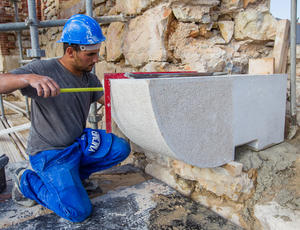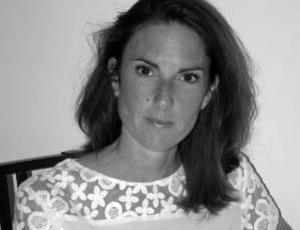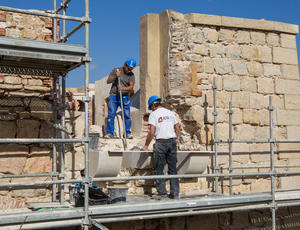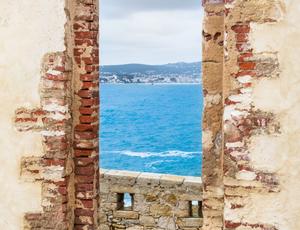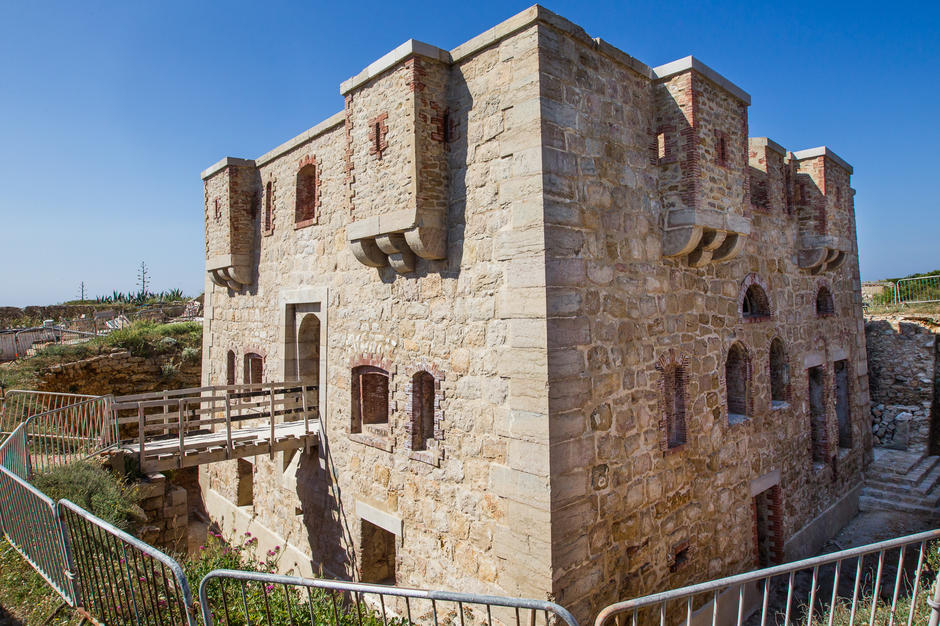
Social and Employment
Places
Marseille and Cassis, France (Bouches-du-Rhône)
Sanary-sur-Mer, France (Var)
Sponsors
Fanny Butruille
Paul-Emile Roblez
Grants
€20,000 granted by the 27/05/2008 Selection Committee
€30,000 granted by the 05/06/2012 Selection Committee
€10,000 granted by the 10/12/2013 Selection Committee
€20,000 granted by the 16/09/2015 Selection Committee
€30,000 granted by the 16/09/2015 Selection Committee
€80,000 granted by the 13/02/2017 Board
€50,000 granted by the 27/03/2019 Selection Committee
€20,000 granted by the 01/04/2021 Selection Committee
Project Leader
Acta Vista has been making sustainable back-to-work schemes its core business since 2002. The organisation has achieved tangible results when advising businesses, offering assistance, setting up projects, managing projects and running back-to-work schemes. So what is its speciality? Conserving and renovating exceptional heritage sites in the PACA (Provence-Alpes-Côte d'Azur), Val de Loire and Luberon regions of France. Acta Vista makes use of practical learning. It runs back-to-work and vocational training schemes in heritage-related trades. The beneficiaries learn a trade by working on prestigious buildings, with the aim being for them to gain sustainable employment.
Acta Vista: facts and figures
Over 400 people hired and trained annually, one-third are under 26.
92% of employees gain a qualification.
60% of scheme leavers secure a job or a place on a further training course.
Each person hired and trained by Acta Vista generates a €7-10,000 saving for the local council, making for a total of over €2 million per annum (McKinsey 2010 study).
Protecting exceptional heritage sites off the coast of Marseille
Acta Vista is particularly active along the coastline of the Calanques (rocky creeks) area. The organisation has done development work in Gardiole and Fontasse and has done maintenance work on the ramparts of Ganteaume and Entrecasteaux Forts. In late 2007, Acta Vista turned its attention to the restoration of the hôpital Caroline (an isolation hospital for patients with infectious diseases) on the Frioul Islands. The project harnessed 40 people who had to travel backwards and forwards between Marseille and the island. Transport became a crucial issue for the Acta Vista teams. A semi-rigid boat was bought with the Foundation’s support to make the organisation more independent and improve its response capacity.
Restoring Cride Fort
In 2012, Acta Vista got involved in a large project - restoring Cride Fort, a 17th military structure. This was a three-phase project, with each phase lasting 12 months, and helped create employment in the West Var jobs market. The project revolved around 45 job seekers under the age of 26 with no qualifications who were excluded from conventional training pathways but were keen to work in the building trade, being hired, trained and obtaining qualifications. Work on the site alternated with training delivered by Bao, Acta Vista’s own training body.
This training was supported by the Veolia Foundation and enabled the young people who completed the scheme to sit an examination to become a skilled heritage restoration worker (built heritage bricklayers), assessed and certified by France’s Council for Architecture, Urban Planning and the Environment. The training and qualification programme was part of Sanary-sur-Mer’s rollout of the Agenda 21 UN action plan.
Building a waterwheel
Acta Vista also managed another project in 2015 with the support of the Veolia Foundation. The project involved building and installing a waterwheel in the pond on the Coudoulière estate. In Saint-Mandrier, heritage was one of the reasons for the project. Acta Vista sought to follow best practice (history and status of the waterwheel) when working on this hydraulic system combining a paddle wheel and bucket wheel to lift water, using energy generated by the current.
The scheme also aimed to improve the skills of six people at the end of Acta Vista’s back-to-work programme. Aged between 18 and 65, these unemployed vulnerable people were paid employees for the duration of the project. After training as carpenters, they were supported by a technical supervisor, one of the organisation’s trainers.
From 2013 to 2015, this training scheme enabled three of the fort’s facades to be renovated. The North, South and West Facades were renovated with the moat being excavated and rubble being removed, scaffolding being erected, the walls being chipped away, hazardous sections of masonry being removed, masonry being restored and each façade being pointed. The terrace roof was also waterproofed.
In 2015, Acta Vista turned its attention to the internal and external restoration of the fort. The team of young people on the back-to-work scheme had to excavate the interior floors, build a staircase on the West façade, strip down and totally clean out the interiors, seal and pave the terrace, apply the finish plaster to the terrace and seal the battery foundations, reinforce the eastern moat's retaining wall, do brickwork on the perimeter wall, and finally build and install the wooden observation tower and restore the old pump house.
A 19th century hospital
In 1820, Marseille was facing an epidemic of yellow fever, a little-known disease at the time. The hôpital Caroline was opened in 1828 and the Frioul Islands became the cornerstone of the public health protection system. Ships suspected to be carrying people with the disease had to call at the islands. The hospital has 12 buildings designed to house 72 closely monitored patients.
The hôpital Caroline site has been a training setting for Acta Vista since 2007. The 58 back-to-work employees commute from Marseille’s Vieux Port alongside their technical supervisors every day to work on the site, while also training to be built heritage bricklayers or carpenters. Seven of the buildings were in a very dilapidated state and have had to be reinforced. The Chevalier Roze building has been fully restored and its stunning six tonne roof framework was helicoptered to the top of the building in 2011.
Opening a school
This Acta Vista project was devised in partnership with Sanary-sur-Mer council and the local Maritime Prefecture and involves opening a water sports and scuba diving school on the Cride Peninsula. The school will be a tourist attraction and will showcase the collections of the town’s Musée Frédéric Dumas, will raise the awareness of visitors about the coastline’s rich biodiversity, and will give them the opportunity to enjoy the thrill of scuba diving, thanks to the patronage of Oceans Future, run by Jean-Michel Cousteau.
Destination: the Frioul Islands to restore the hôpital Caroline
In 2017, Acta Vista set up a new project - restoring the hôpital Caroline on Ratonneau Island, one of the islands in the Frioul archipelago. This long-term project has already mobilized close to 300 people on back-to-work contracts. These workers have reinforced seven of the hospital’s 12 buildings and have completed the restoration of one of them, the Chevalier Roze building. The organisation has set itself the goal of recruiting and training some 100 people who are out of touch with the job market in order to step up its work. It also plans to forge operational links with the Veolia Group to facilitate the recruitment of its workers once they have completed the back-to-work scheme. The Foundation’s assistance is backed up by the support of the Veolia teams in South-East France and the teams notably help with enhancing the back-to-worker employees’ personal safety skills.
Acta Vista as told by its framers
In 2019, the Acta Vista teams are focusing on Fort Saint-Nicolas, which the city of Marseille has entrusted to them. Still within the framework of its integration workcamps, the restoration of the fort undertaken for several years is gradually moving to the upper part of the building.
Employing, training and accompanying asylum seekers and refugees
In 2021, the team is focusing on the adapted reception required by the growing presence of asylum seekers and refugees. With the support of the Veolia Foundation, Acta Vista is adapting its practices and introducing new methods of support and training. The challenge is both to offer French language training and to provide better support for the social and professional integration of these profiles, often marked by personal trauma. The program is defined around the triptych "employ, train and accompany", with the proven expertise of Acta Vista.
Acta Vista and Bao’s teams have about forty staff (back-to-work project managers, administrative personnel, site managers/trainers, supervisors, foremen, environmental engineers, etc), who have supervised 2,800 employees in back-to-work projects since 2002 with a success rate of 40 % finding work on average and 60 % obtaining qualifications. In respect of its socially useful work, Acta Vista is approved as being “Socially Responsible” and has several certifications confirming its priority commitment to the environment, including “Protection of the environment” accreditation and ISO 14001.
Furthermore, Acta Vista has set up the “Vitruvius for heritage and humanity” fund, in order to make clearer how it manages grants and ensures their full traceability.
The news was revealed on 22 December by François Hollande, the President of France, at an event held at the Elysée Palace. Acta Vista, association supported by the Veolia Foundation, was among the 16 winners chosen from the 850 projects submitted to the La France s’engage call for projects.


